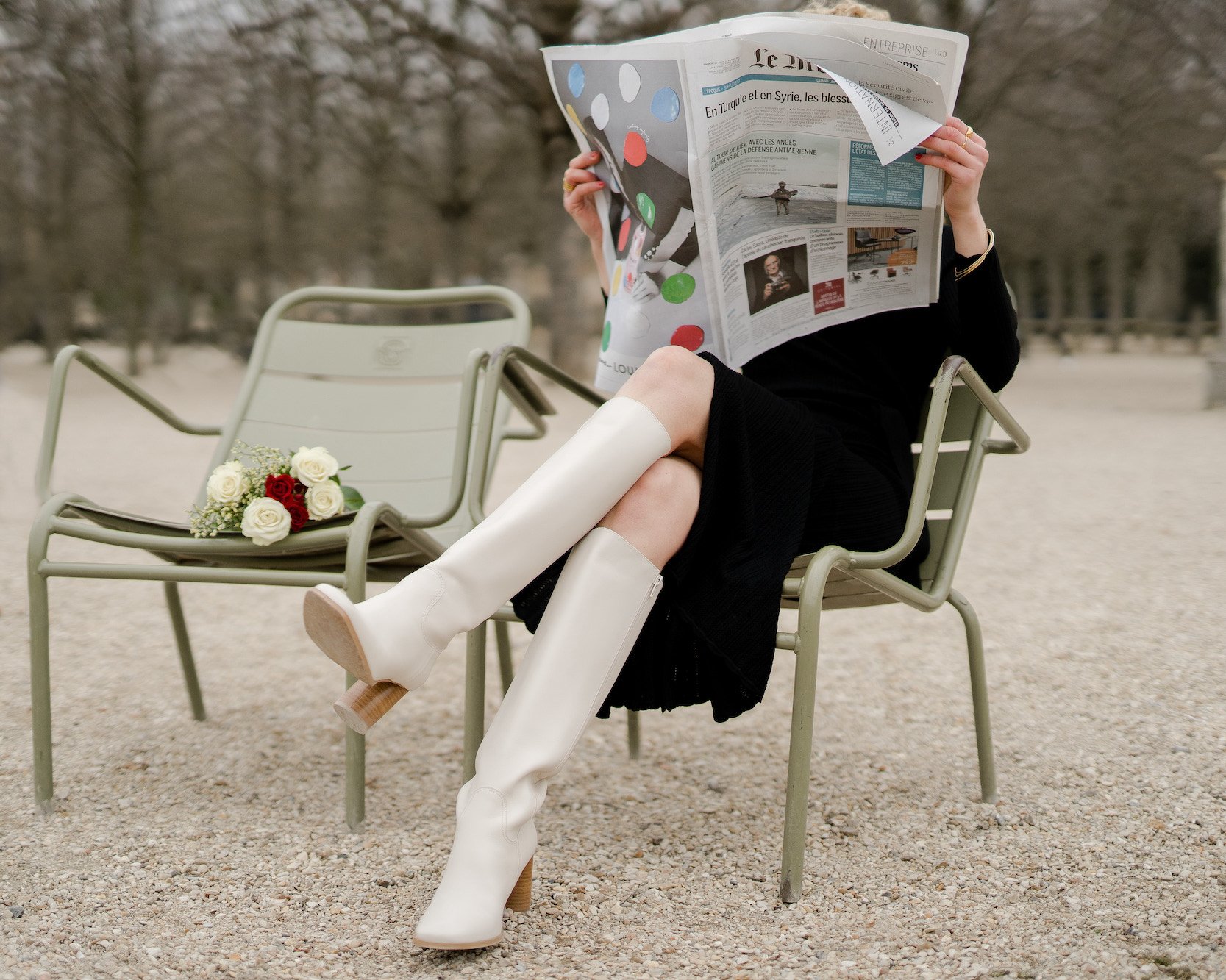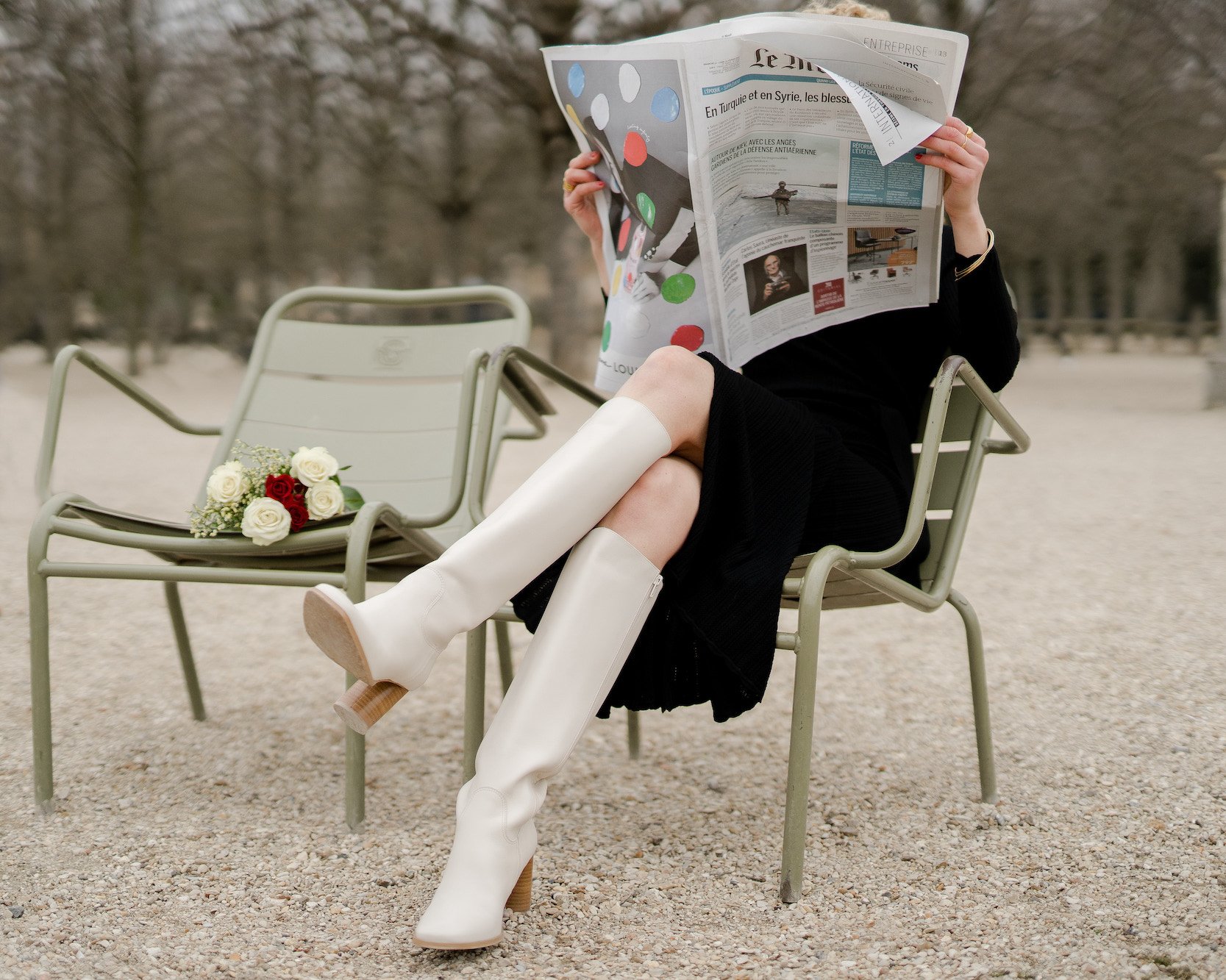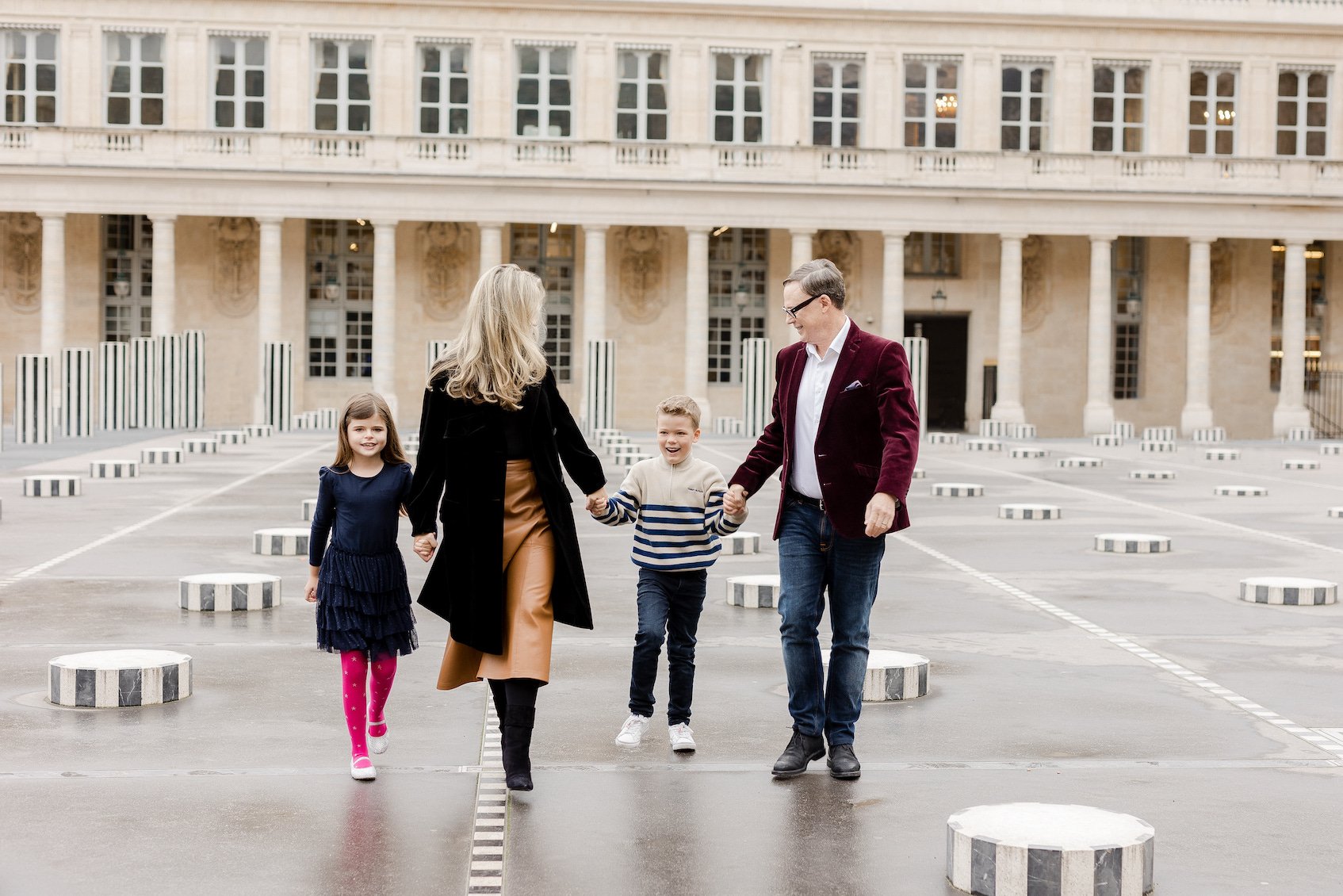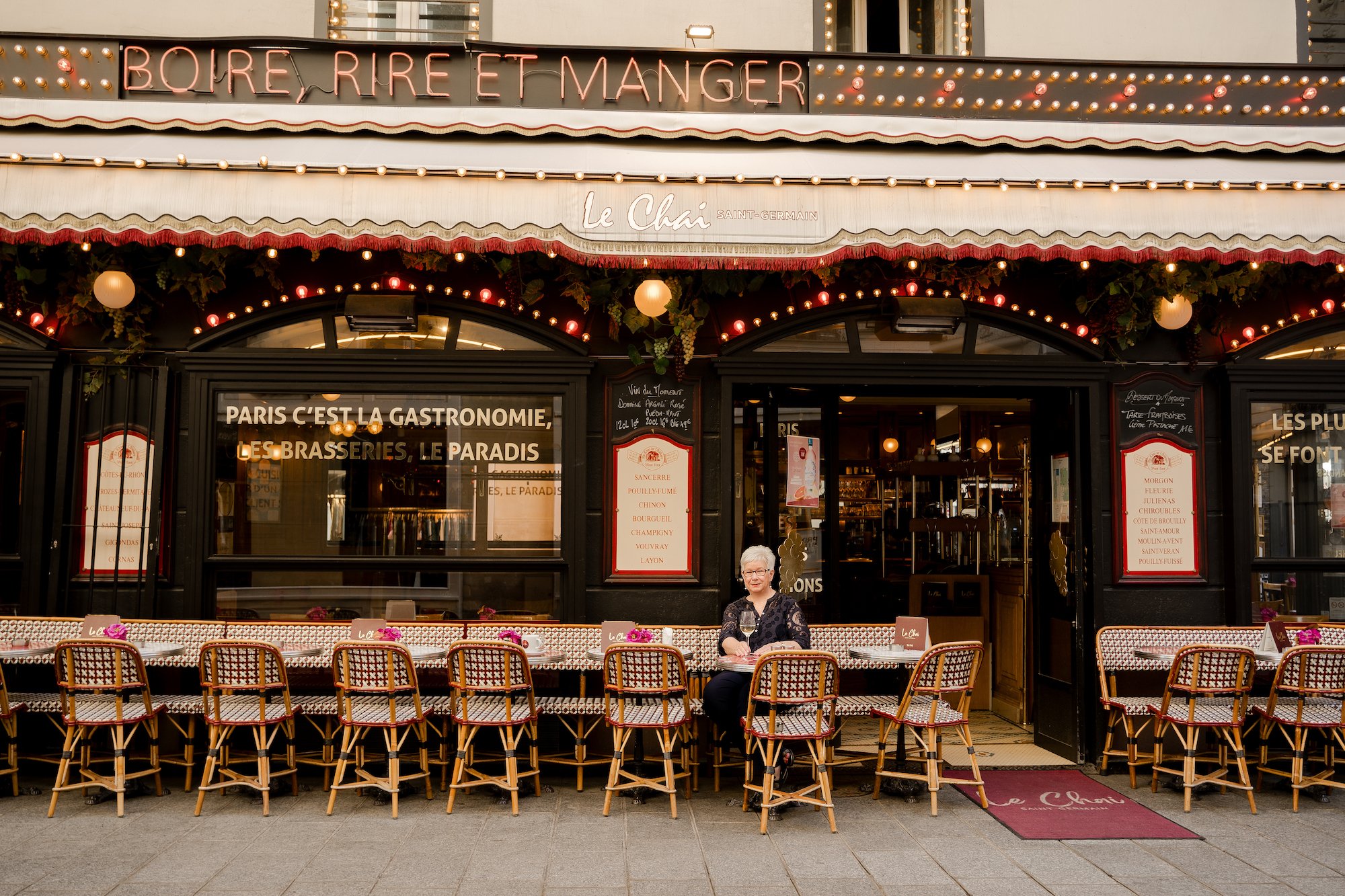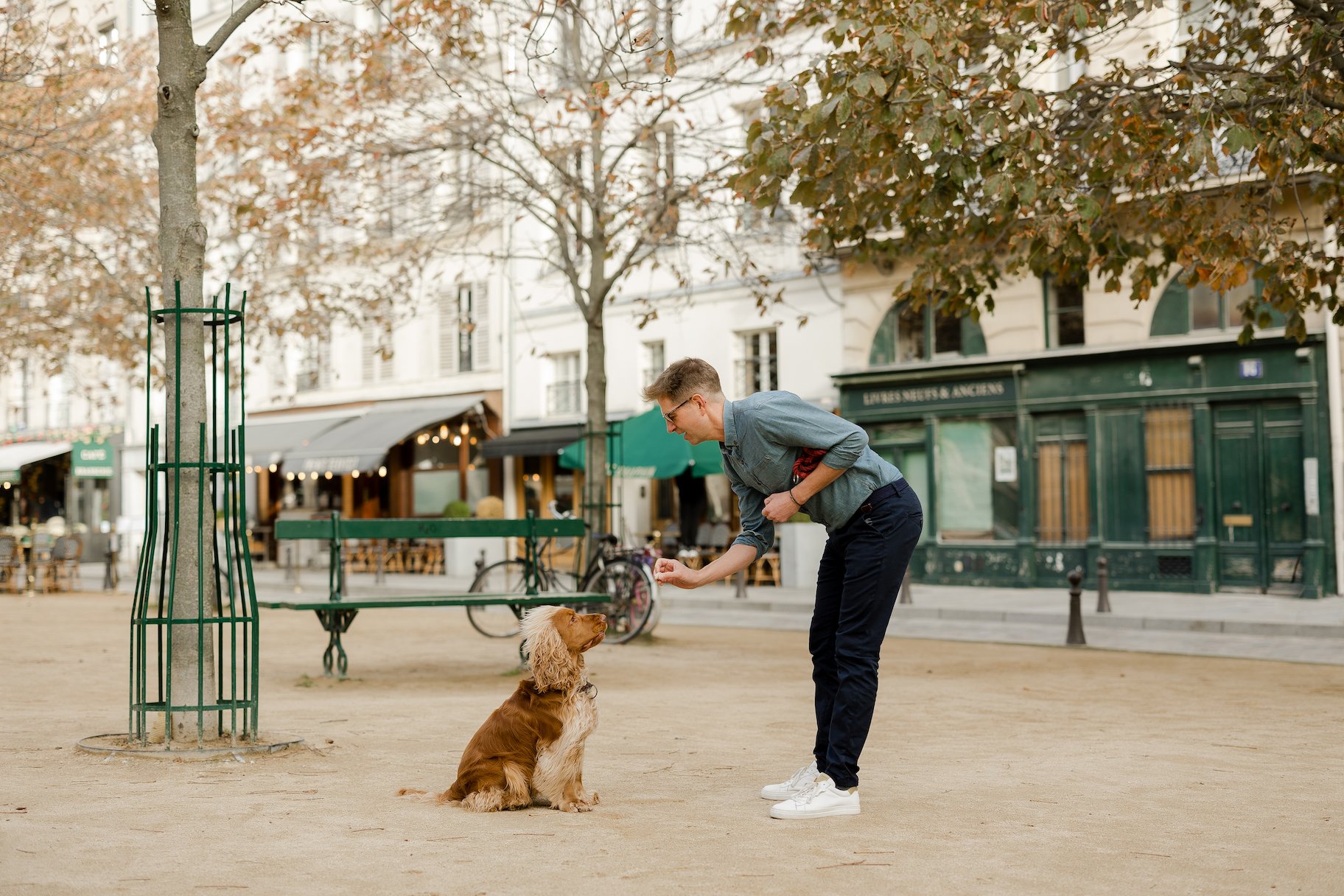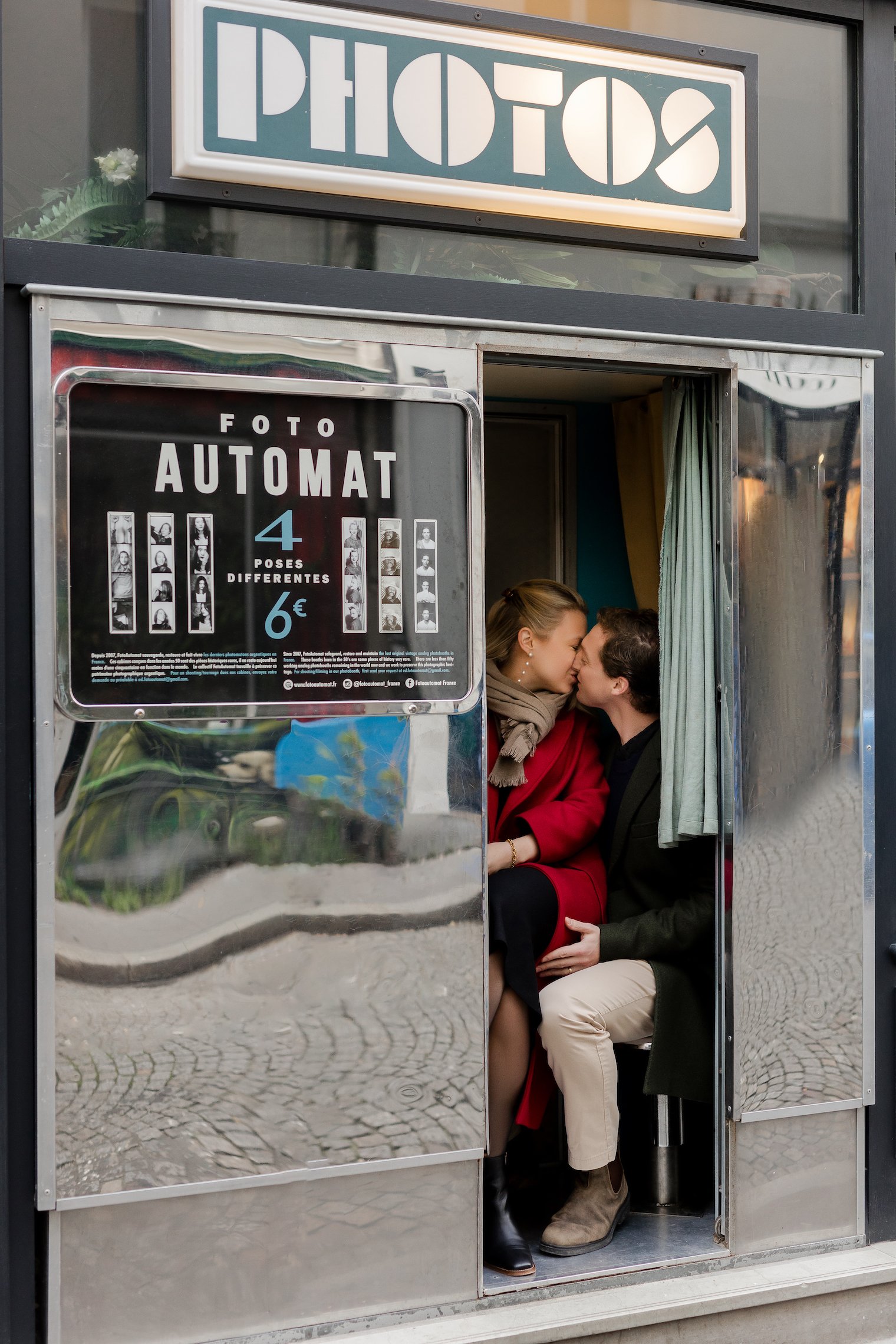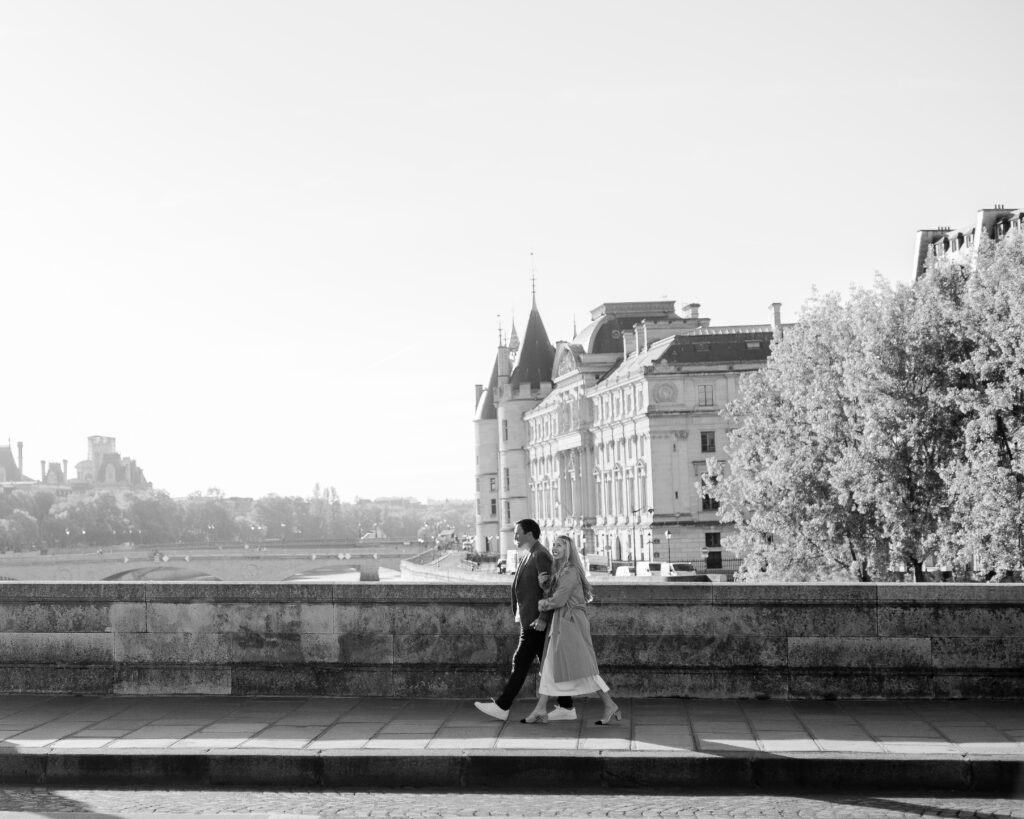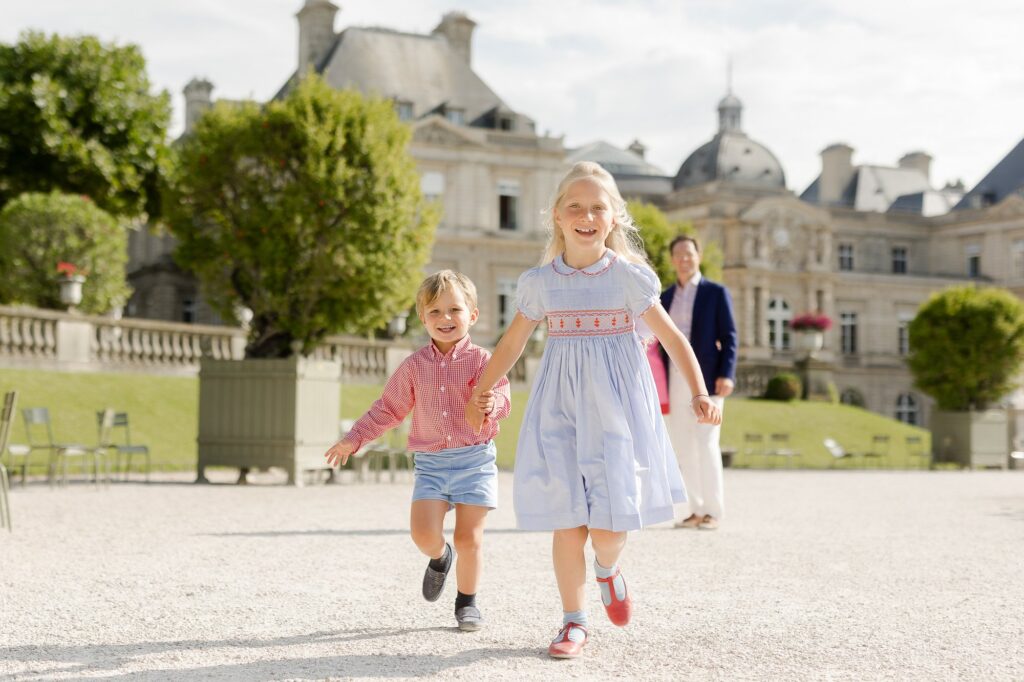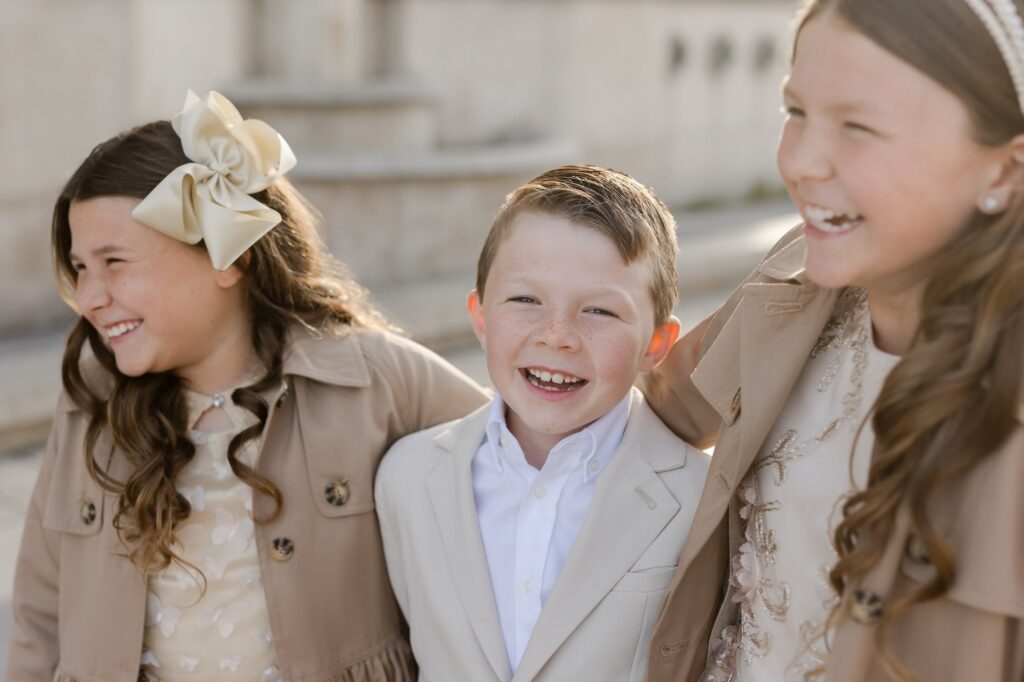Moving from the United States to another country is a funny thing. When you first arrive, it’s almost impossible not to have a suitcase packed full of stereotypes and misconceptions about the culture. But the longer you spend there – especially when you’re American and the country is France.. the more you discover the truth behind these misconceptions, why they’ve been blown out of proportion, and sometimes even why they exist in the first place. Often, there IS a small grain of truth beneath a popular belief.
It’s been so fun to go on this journey myself, and learn about France from the inside out. It’s 11 years that I’ve lived here now and gone from only knowing “Bonjour” to being fluent in the language and the culture. When I see friends who just move here stumbling along and saying things like “But why are the French so mean!,” I just kind of laugh because I totally had these thoughts too until I fell in love with a French guy and realized they’re basically all wrong… kind of. Truth is, the version of me 13 years ago in NYC didn’t know what hit her when my now-husband walked into my life, and I’m so excited to bust these misconceptions or at least give them some context.
So, we wanted to dive into cultural differences, common stereotypes, and misconceptions in the city of love. Join us as we debunk five common myths about the vibrant and multifaceted world of French culture.
1. The French are Rude
One of the most enduring stereotypes about the French is their perceived rudeness. Honestly, this couldn’t be further from the truth. Okay okay…yes the French may come across as more direct or reserved in certain social situations, but once you break through that initial barrier, you’ll find warmth, hospitality, and genuine kindness. I feel like this has to be one of the biggest cultural misunderstandings.
My husband says this, “Americans are like mangoes, all soft and gooey on the outside but rock hard on the inside, French people are like coconuts. Hard as rock on the outside and milk on the inside.” Which is honestly soooooo true (and one of the hardest things for French people when THEY move to the US.. You can essentially have the best night of your life with someone and then never see them again.) That’s so American and really wouldn’t happen in France with someone you JUST met!
Basically what my husband is trying to say is that French people are a bit more standoffish at first and it’s harder to have a conversation with a stranger, it takes a little time, but once you get through, they’re amazing friends and people. With Americans it’s really easy to become an acquaintance but harder to become a true friend. I would definitely say this is true. Also, none of this is saying one is better than the other, they’re just different approaches to becoming friends with someone. Both are ok!
We really recommend taking the time to engage with locals, whether it’s striking up a conversation with new people in a café or exploring the charming streets of a small town, and you’ll discover how warm and engaging French people can really be. They’re not as outwardly enthusiastic as Americans, but this doesn’t mean they aren’t happy. Often, French excitement is more understated, and that’s perfectly okay.
One of the BEST ways to improve your interactions is knowing a little French beforehand. You don’t need to be an advanced French speaker to travel to Paris. But having a few phrases under your belt can sweeten your experience. People love when you make an effort to communicate with them. It doesn’t have to be perfect…it’s the thought that counts.
Since Paris already has jam-packed crowds, this can set you apart from other tourists and allow you to connect on a more personal level with the locals. French people really open up when you speak the local language, believe me.
For some basic french phrases, go check out our blog HERE
For some general tips for learning the french language, check out our blog HERE
2. French Cuisine is all about Frogs’ Legs and Snails
When it comes to French cuisine, many people immediately think of escargot and frog legs. While these delicacies do have their place in French gastronomy, they represent only a small fraction of the diverse and exquisite dishes found across the country. And French people are NOT eating escargot and frog legs on a daily basis.
I just checked with my French husband and in his lifetime he has never eaten frog legs and has only seen them on Chinese food menus.. So that tells you how common they are (haha). Not the same about Escargot though (how you say snails in French). Escargot is actually SOOOO yummy because it’s absolutely covered in butter, parsley, and garlic which is truly impossible to go wrong with.
There are many other traditional dishes that make up the French diet. From foie gras to the the buttery croissants of Parisian bakeries… From the rich bouillabaisse of Marseille to the hearty cassoulet of Toulouse, French cuisine is a celebration of flavor, tradition, and regional diversity.
Some things I recommend to try while you’re here:
ALL THE CHEESE
St Emilion Red Wine
Baguette Tradition with Cheese from a Cheesemonger (I love Roquefort!!) – more on how to order in a French bakery HERE
Croissant au beurre
Steak Frites, Sauce au poivre (Steak and Fries with Pepper Sauce)
Duck Confit
Salade de Chèvre Chaud
But hey, if you’re visiting Paris for the first time and you’re an adventurous eater, you should definitely give Escargot a try. It’s a once in a lifetime experience for sure! Don’t miss out on good food and some of the most-loved dishes.
3. Paris is the Only Place Worth Visiting
While Paris certainly holds a special place in the hearts of many (especially mine!), there’s so much more to France than just its capital city. From the sun-drenched vineyards of Bordeaux (would HIGHLY RECOMMEND) to the fairytale villages of Alsace (Amazing for the Christmas Markets!!) and the rugged coastline of Brittany, each region offers its own unique charm and beauty. If you have enough time to venture beyond the well-trodden paths of Paris, you’ll be rewarded with a wealth of unforgettable experiences.
I love going on weekend trips out to the countryside, or getting a taste of that southern sun whenever I get a chance. The TGV, the high speed train is really good for this and makes it super accessible. From most stations we either use the public transit or occasionally rent cars. There’s so much French history to discover, and sometimes the best way to do it is to leave all the museums behind and just meander through a small town or village.
Honestly, a lot of people just think Paris and France are the same thing. The country is so much larger than just Paris, we recommend exploring!
Go check out our blog about weekend getaway trips from Paris HERE if you’d like some destination recommendations.
4. French People are Always Stylish
Let’s talk about the stereotypical representation of a french person (which is honestly…. true… mostly).
There’s an image of the French as sophisticated or always wearing a striped shirt with a baguette tucked under their arm (okay, the baguette part might be true…). In this stereotype, the french wear berets and are known for their french attitudes, which is even present in their style. A lot of this portrayal of France has come from the movies, like old films that showcase life in European countries.
But in the same way that American movies aren’t representative of all Americans, French cinema does not define the identity of the French. Generally, it just shows an older more curated version anyway. I think the misconception about style is a very popular french stereotype.
It’s true that the French have a certain flair for fashion, but that doesn’t mean everyone walks around in designer labels and haute couture. French fashion is much more about being put together in clothing that fits you well and is taken care of, than wearing designer clothes. They ALWAYS go outside dressed, never in “athleisure” or PJs.
I think that’s what also makes a big difference, people go outside looking presentable in a way that they wouldn’t ever apologize for. There’s no workout wear UNLESS you’re actually working out.
Like people everywhere, the French embrace a range of styles, from casual and laid-back to chic and sophisticated. Sometimes I think that what truly sets them apart is their effortless confidence and ability to carry themselves with poise and grace, regardless of what they’re wearing. This outward confidence is also a french tradition. It might even be one of the unique characteristics that make it seem like the french are rude people.
An aside on berets: French people just really don’t wear them unless they’re from Brittany (where the beret is from) or they’re being cliché. It’s just not a thing here though recently I’ve seen it back in style a bit. That said, the big part of dressing “French” is just being put together and being yourself in your own style, so if berets make you happy, WEAR ONE!!
5. French Culture is Stuck in the Past
While France is undeniably proud of its rich history and cultural heritage, it is by no means stuck in the past. From cutting-edge fashion and innovative cuisine to groundbreaking art and architecture, France is a hub of creativity and forward-thinking. Whether you’re strolling through the galleries of the Louvre or sipping coffee at a trendy café in Le Marais, you’ll find a dynamic blend of tradition and modernity that is quintessentially French.
One of the things we love most about the country is its exciting fusion of old and new. There are so many young people in the big cities, which makes it full of different perspectives and french customs. The big difference with the new here is that it doesn’t come at the DISPOSAL of the old. The new is not always to erase the old, it’s to build on the foundations, or incorporate it in a way that enhances both. With this in mind, the new is considered in LONG TERMS of quality and longevity.
In my personal experience, I’ve learned so much from living here all these years. Not only has it taught me about French culture, but also about American culture and where I come from. The general culture in France is strongly influenced by previous centuries, which makes it so cool to see younger generations incorporating these historic foundations into their everyday life. I love seeing how beautifully preserved the French language is, while it evolves in new and interesting ways.
French culture has been woven together from centuries of history, art, and tradition. By challenging these misconceptions and embracing the true diversity of French life, we can gain a deeper appreciation for the country and its people.
So, next time you find yourself in France, take the time to explore beyond the stereotypes and discover the magic that lies beneath the surface.
À bientôt!

